In this article, you will learn some instructions on how to enable Live Transcription in zoom and Enable Zoom Closed Captioning.
Accessibility has been a constant topic of debate as consumers seek additional ways to communicate with each other online.
Closed captioning and real-time transcription have been added to Zoom, a popular video conferencing program. Deaf, blind, or hard-of-hearing individuals and non-native English speakers benefit greatly from these elements. As a result, it’s now easier for everyone in a Zoom meeting to comprehend and respond to each other’s comments, making everyone feel more connected.
How to Enable Zoom Closed Captioning or Zoom Live Transcription Free
It is possible to deliver closed-captioned video for all attendees in a meeting or webinar, either by manual or third-party means. However, only the host/panelist can perform manual captioning during a webinar.
You can use live transcription instead of closed captioning if you cannot offer it. However, there are several drawbacks to this approach. Among other things, its accuracy is impacted by:
1. Background noise.
2. Dialects & lexicons of a particular community or geography.
3. The speaker’s volume, clarity, & proficiency with English.
4. You can employ a better-accurate captioner, especially in meetings or webinars that require assistance with accessibility or compliance.
This feature is unavailable to all Zoom users, so keep that in mind. Wait for an email with instructions on enabling live transcribing after filling out a request form.
You can provide closed captions for 3 different types of users in your Zoom account:
- One user (yourself).
- Users in a group.
- All users in the account.
One User
You can allow closed captions in Zoom for your use.
1. Firstly, sign in to Zoom on your web browser and select Settings.
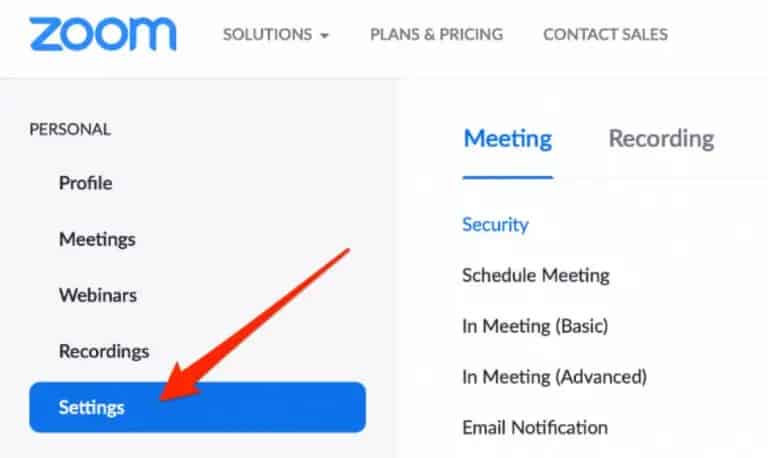
2. Choose Meeting > In Meeting (Advanced).
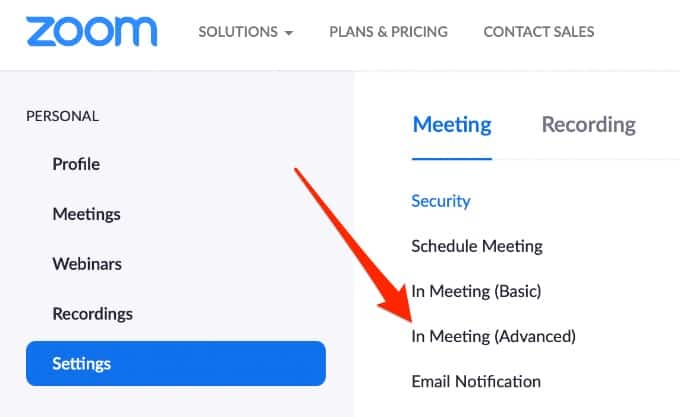
3. Closed Captioning can be enabled by turning on the switch next to it and checking the Enable live transcription service to present the transcript on the side panel in-meeting box.

4. Choose Enable.
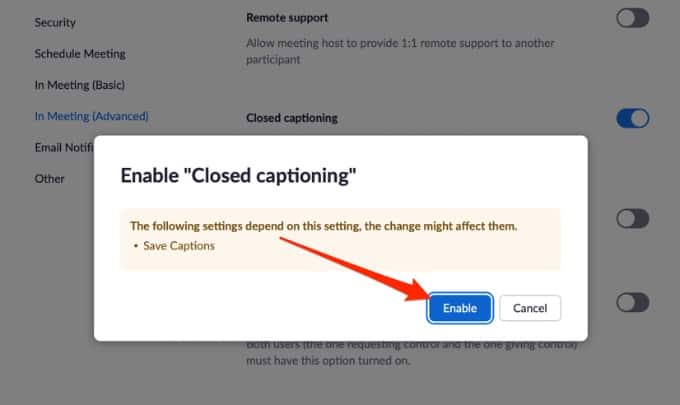
Please note that if the Closed Captioning option is greyed out, it signifies that the feature has been restricted to a specific account or group of accounts. Request permission from your Zoom administrator to use the function.
Closed Captioning can be activated so that you can enable additional functions, like:
- Integrating with a 3rd party captioning service through an API token.
- Enabling live transcription for automatic transcription.
- Enable participants to access the transcript & save captions.
Users in a Group
Users in a group can also benefit from Closed Captioning during a Zoom meeting, allowing them to read the subtitles.
1. Open Zoom on your web browser and choose User Management.
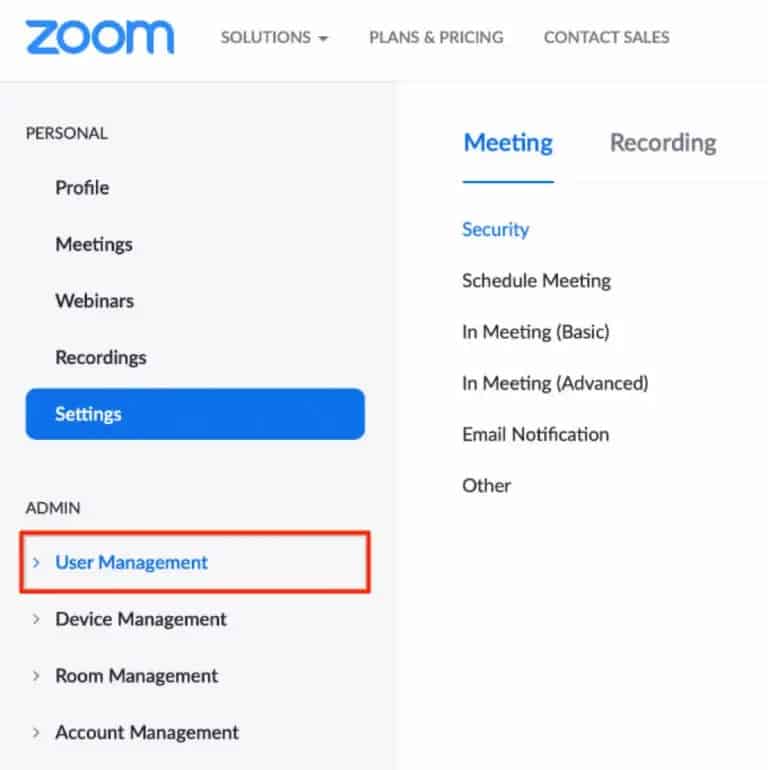
2. Afterward, select Group Management > group name.
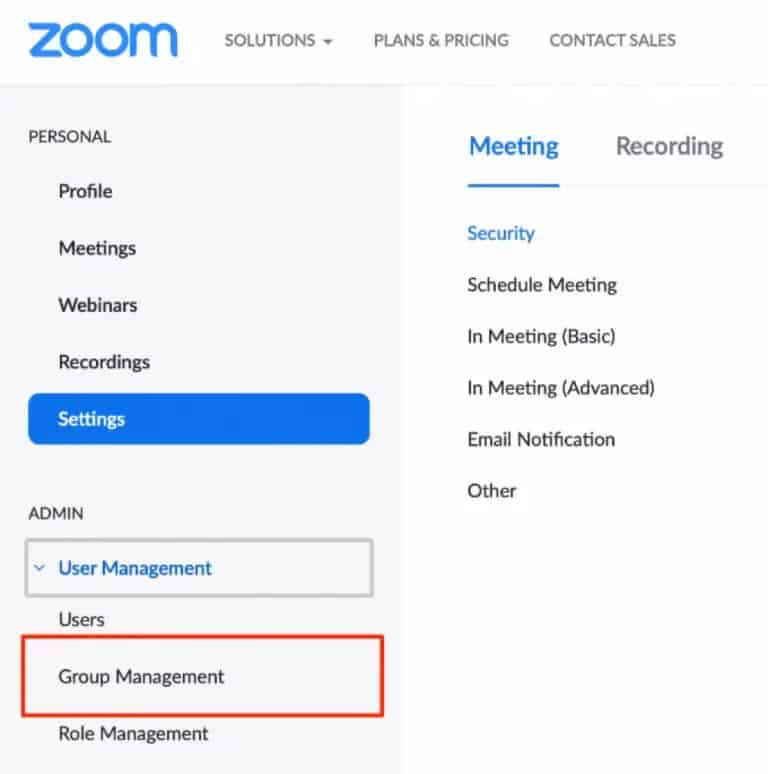
3. Now, choose Settings > Meeting > In Meeting (Advanced).
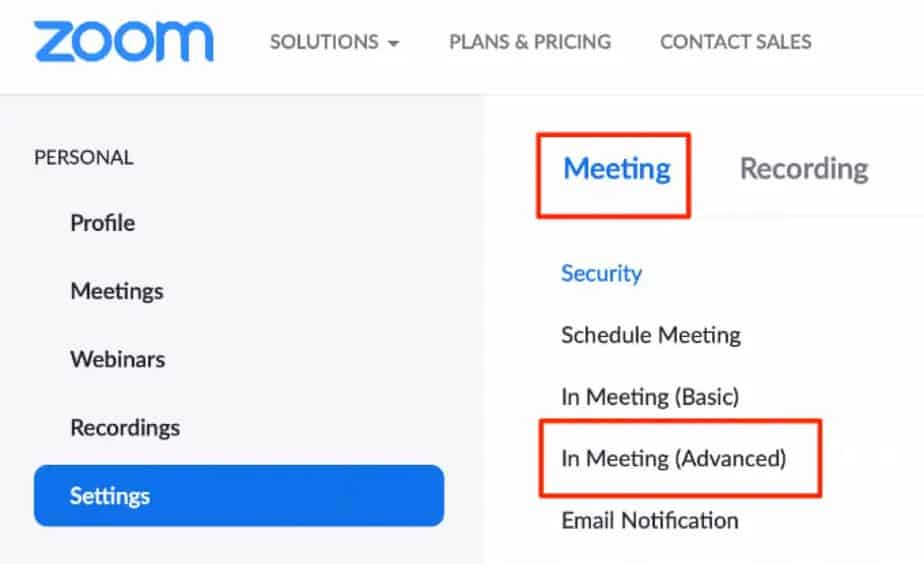
4. It is necessary to turn on Closed Captioning and the option for Live Transcription.

5. Choose Enable.
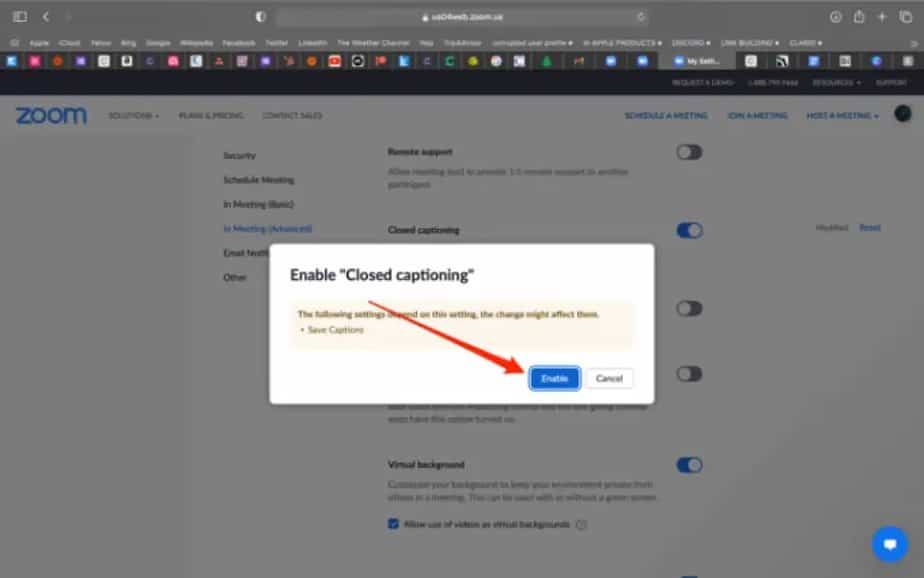
All Users
During the Zoom meeting, you can make the Closed Captioning option available to everyone who has a Zoom account.
1. Choose Account Management > Account Settings under the Admin section.
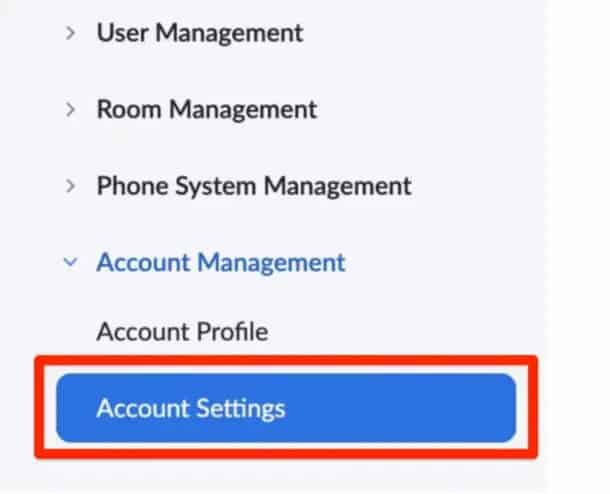
2. Now, choose Meeting > In Meeting (Advanced).
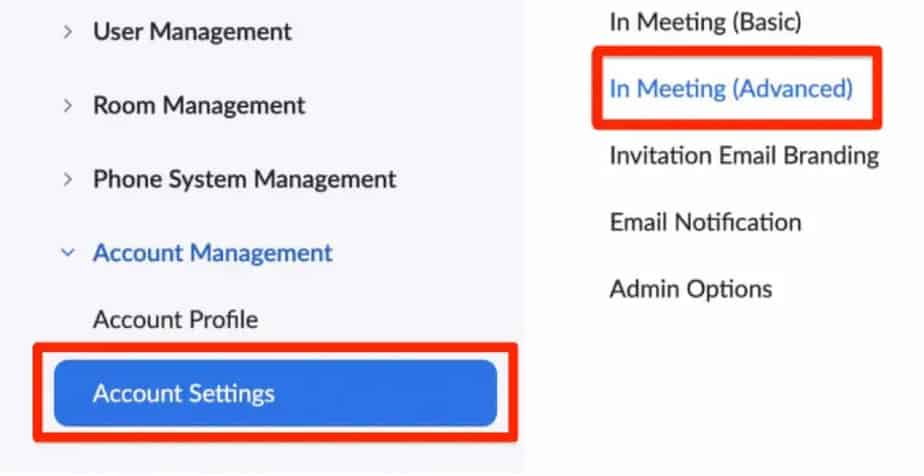
3. Afterward, toggle the Closed Captioning switch to on/blue to enable the feature.
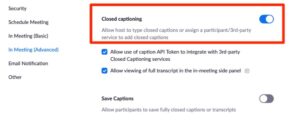
4. Choose Enable.
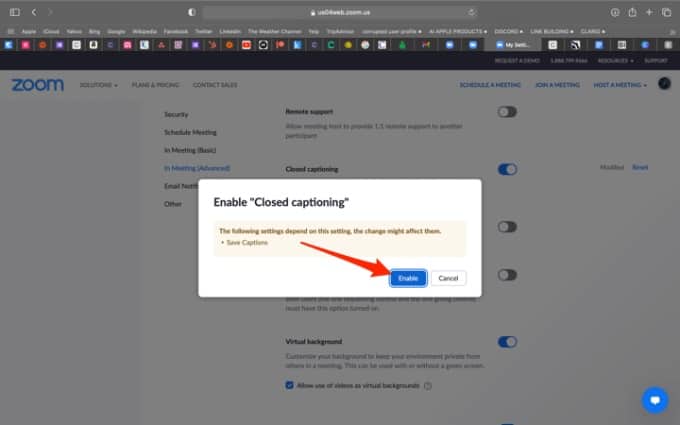
Enable Closed Captions in Zoom Rooms
Zoom breakout rooms aren’t the same as Zoom rooms and should not be confused. In contrast, they are separate sessions, not part of a larger Zoom meeting.
However, Zoom Rooms is a digital arrangement that allows people in a physical location to interact with those working remotely to conduct virtual meetings.
1. Open Zoom in your web browser and choose Room Management under the Admin section.
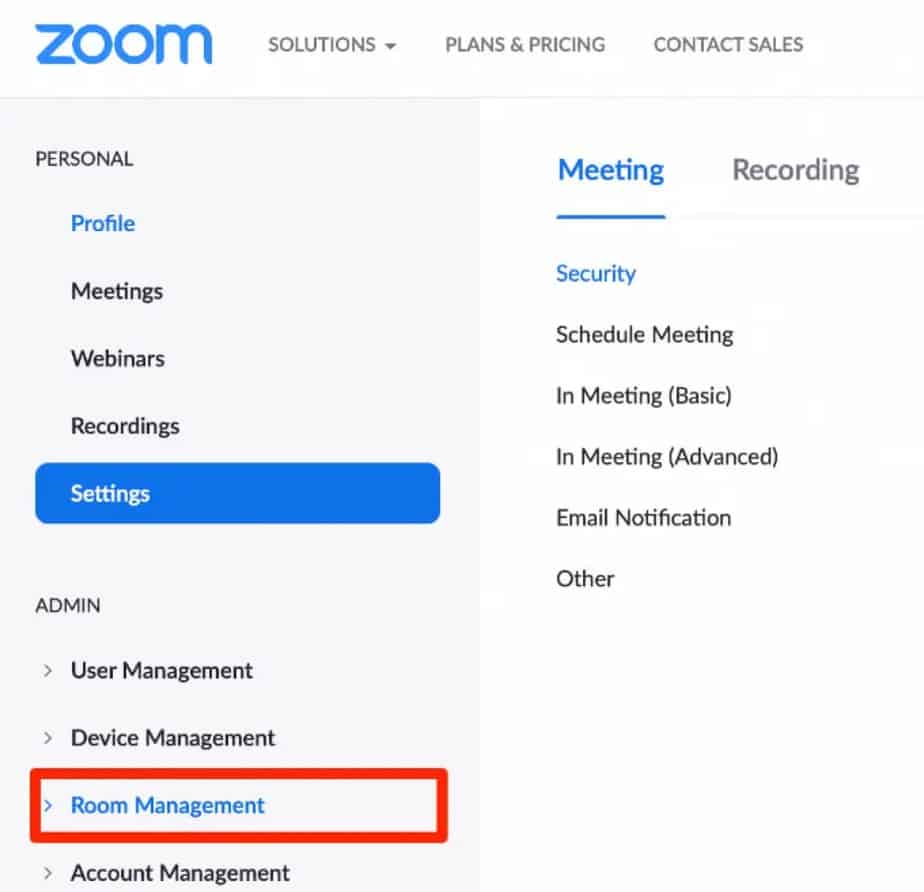
2. Choose Zoom Rooms.
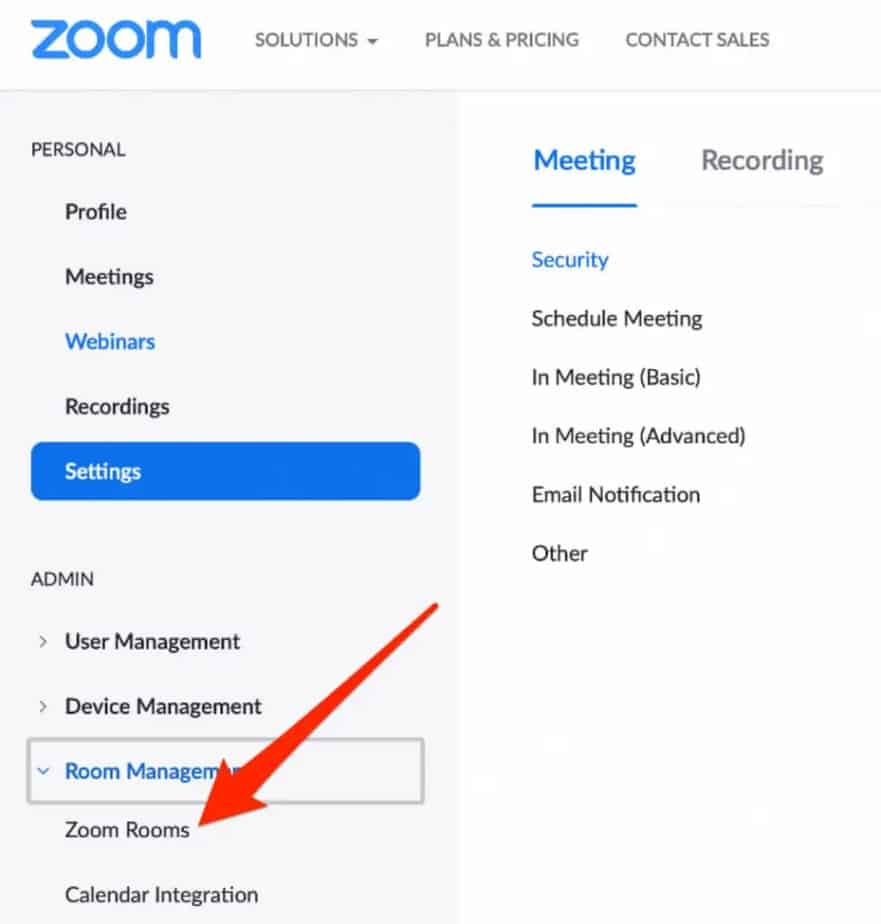
3. Now, choose Edit for the Zoom Room to enable the Closed Captioning feature.

4. Lastly, choose Meeting > In Meeting (Advanced), then toggle the Closed Captioning switch to on/blue.
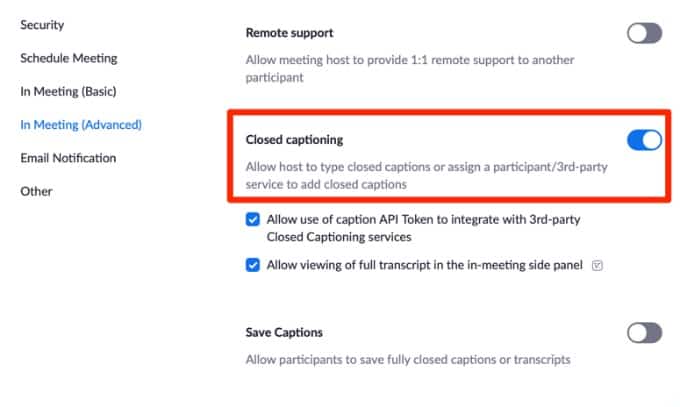
Use Closed Captioning or Live Transcription in a Zoom Meeting
You can now make use of Zoom’s Closed Captioning and Live Transcription tools while participating in a webinar or meeting.
1. You can enable auto-transcription by selecting the Closed Caption or Live Transcript icon and selecting Enable Auto-Transcription from the meeting controls at the bottom of your screen during a meeting.
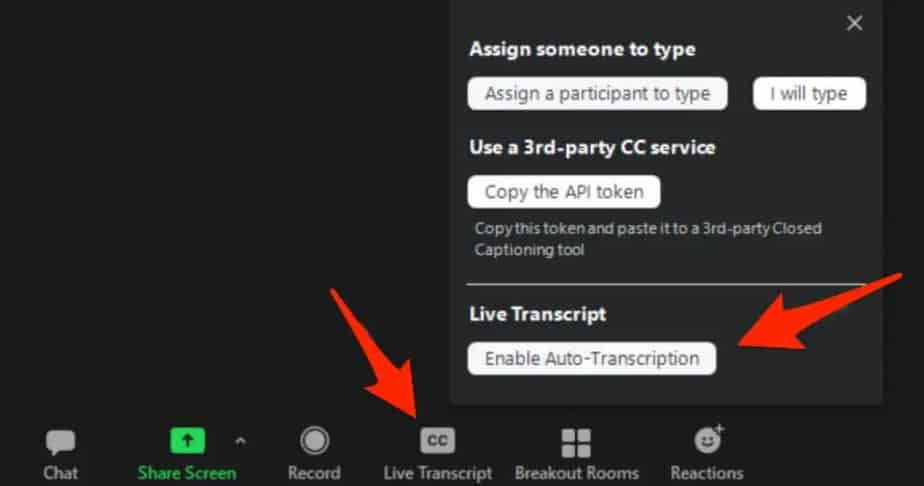
2. You can select to do the following during the webinar or meeting:
- Assign one of the meeting participants to type the closed captions.
- Type the closed captions yourself.
- Copy the URL or API token to share with 3rd party captioning services to integrate with your Zoom webinar or meeting.
Assign Meeting Participants to Type Closed Captions
If you do not need to type the meeting captions yourself, you can select a participant to do it.
1. Under the Assign someone to type section, choose to Assign a participant to type.

2. Now, in the new window, find the participant’s name, hover your cursor over it and choose More.

3. Afterward, select Assign to type Closed Caption.

4. It will appear in the participant’s meeting controls, and the captioner will be alerted. To begin typing the captions, users must first select Closed Caption (CC).

How to Use Closed Captioning in Breakout Rooms
Before the breakout rooms are opened, you must assign one member to be the captioner. Therefore, only one breakout session can have closed-captioned video content.
Set up a breakout room after assigning a subtitler and move the subtitler inside one. The captioner can begin entering the captions by clicking on the Closed Captions icon in the breakout room.
It’s possible to get the closed-caption transcript by clicking on the Closed Caption symbol and selecting Show Subtitle or View Full Transcript.
It will be necessary for both the captioner and other participants to re-enter the main Zoom conference to type the captions and read the subtitles or transcript.

For Zoom breakout rooms, the Live Transcription option is not available. However, a closed-captioning service in breakout rooms is an option for the meeting host.
Final Words
Since the worldwide pandemic, remote webinars, meetings, and video conferencing have become increasingly popular among individuals and organizations.
Because of Zoom’s closed captioning and live transcription capabilities, all conference attendees benefit from a sense of inclusion.
ALSO SEE: Turn off Filter Keys
Is this information helpful? Please let me know in the comments section below.






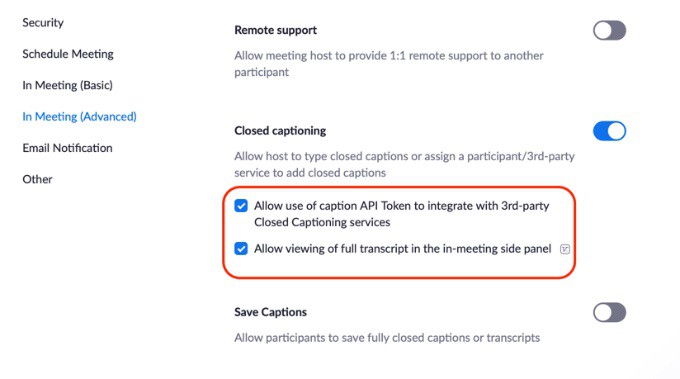
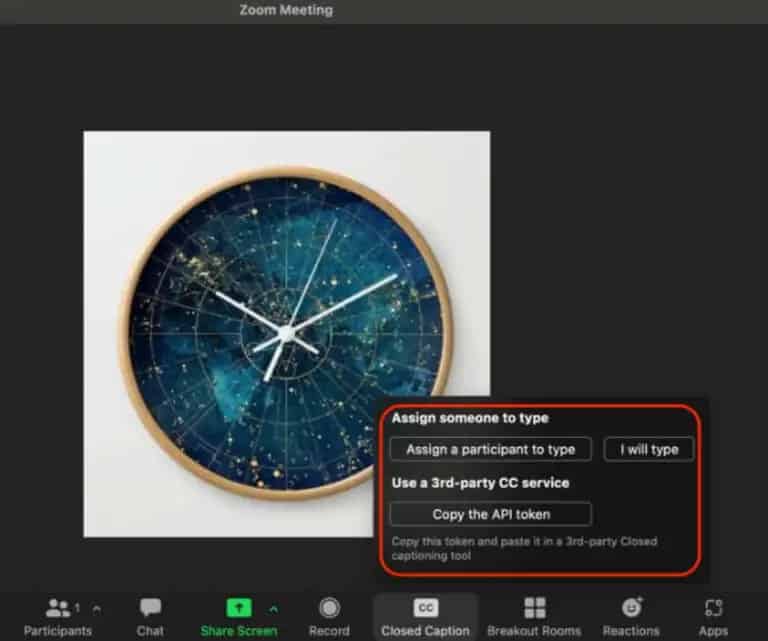







Leave a Reply